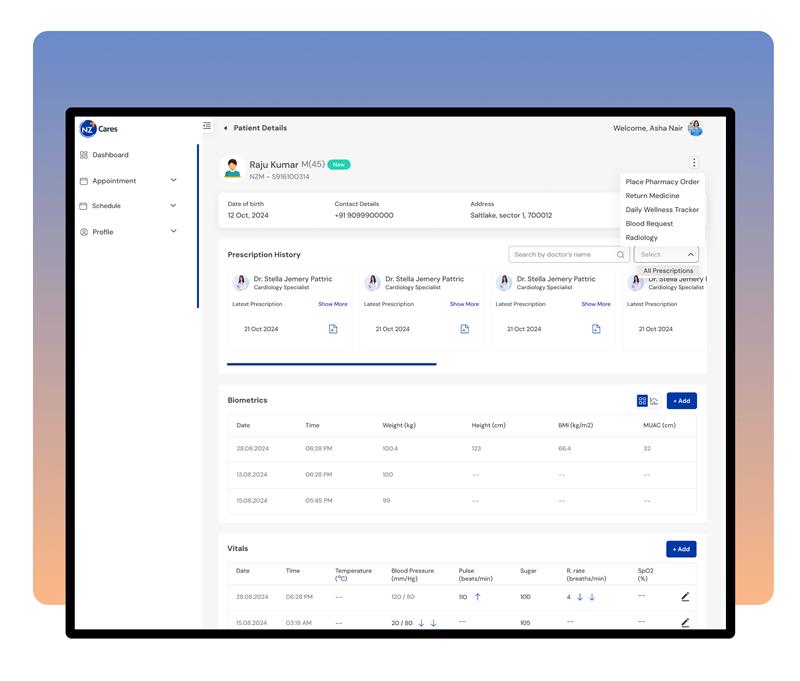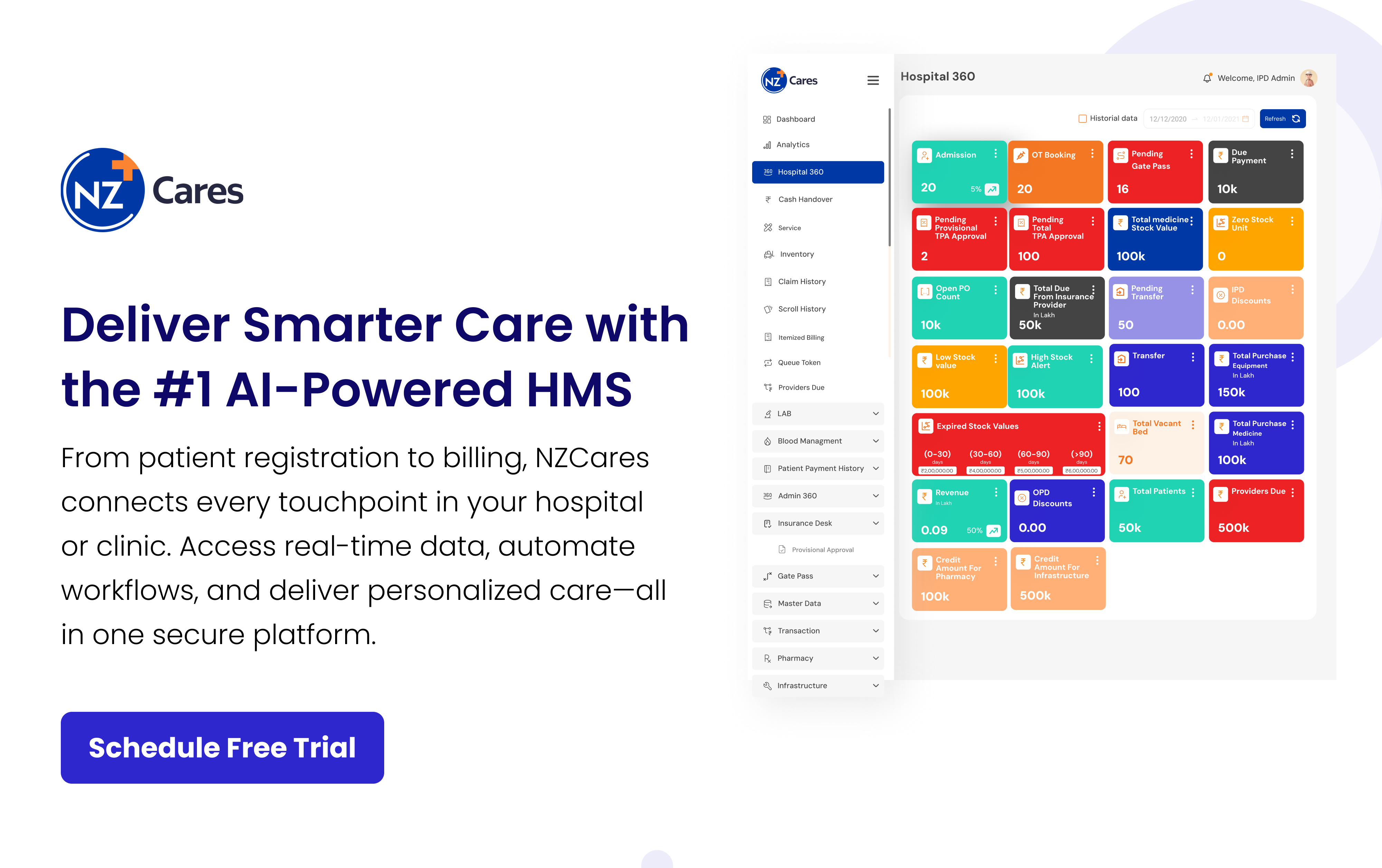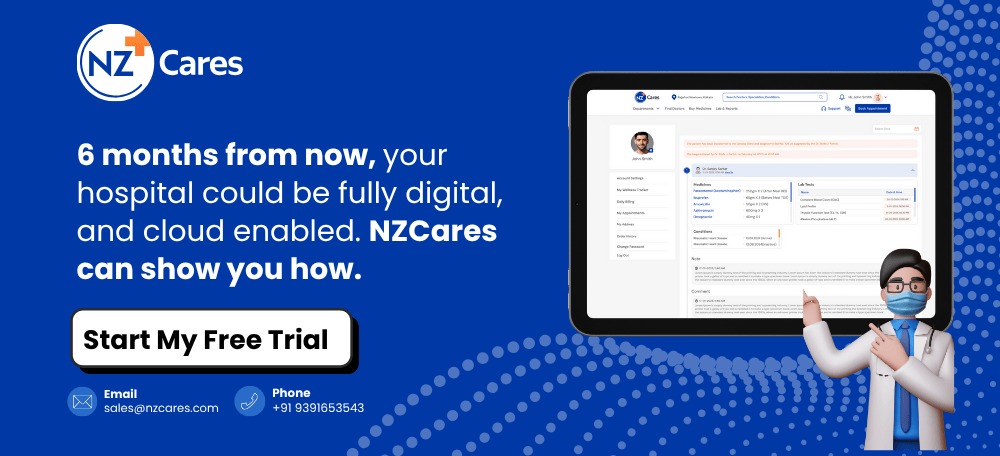Fertility medicine has always lived at the crossroads of science and hope. But in 2025, the question isn’t only about the success rate of in-vitro fertilization. It also depends on how clinics and IVF centers focus on creating a stress-free, transparent, and deep care experience for soon-to-be parents.
No doubt, the demand for IVF is rising fast, and the World Health Organization reports that 1 in 6 people worldwide struggle with infertility, which is almost 17.5% of the adult population.
This is a double-edged sword: more patients mean more opportunities to help, but also greater pressure to manage expectations, maintain compliance, and prevent emotional burnout for patients and staff alike.
This is why IVF fertility software is no longer optional. It has become the invisible partner guiding every embryo transfer, every patient interaction, and every anxious late-night check of the portal.
In this guide, we’ll explore:
-
The patient journey in fertility clinics
-
Why IVF-specific software matters
-
The 10 must-have features of fertility clinic management systems in 2025
-
Why NZCares is designed to meet these exact needs
Understanding the IVF Patient Journey
When it comes to patient treatment, fertility clinics operate differently than conventional clinics where patients arrive for diagnosis and leave with prescription.
There are care stages that a patient goes through for multiple months. It involves numerous scans, injections, appointments, and endless waiting periods. This is a complex and unorganized workflow. For clinics, it means:
- OPD registrations, consultations, and diagnostic workflows.
- Lab operations with embryology precision.
- Counseling and psychological support.
- Compliance with ART-specific laws and international standards.
Without seamless digital systems, issues appear everywhere involving misplaced reports, cycle delays, billing confusion, or poor communication. Meaning every little gap in the process adds unnecessary stress to an already difficult journey.
That’s why the promise of an IVF clinic management system lies not only in operational efficiency but in restoring trust and calm for patients. Hence the best IVF fertility software is designed not just for efficiency, but for trust and reassurance.
Read More: Reimagining Primary Health Care in India: The Role of AI, Digital Innovation, and NZCares
Let us Explore the 10 Must-Have Features of IVF Fertility Software in 2025
The journey begins long before a patient walks into your clinic. If booking feels like a chore, you’ve lost them before you’ve even met.
Offering online scheduling with real-time availability cuts through phone wait times. Add the feature of instant appointment confirmation, and you’ve earned the trust of patients. According to various reports, up to 26% of growth is recorded in appointment booking due to online scheduling.
This is an important strategy for new clinicians who are still learning about how to increase patient volume in clinics environment.
1. Centralized Patient Dashboard
A fertility journey can generate more paperwork than most people handle in a year. Scans, test results, bills, treatment protocols, every piece of information is absolutely necessary.

The best IVF fertility software is equipped with unified patient dashboards. They remove any confusion and complexity in patient health information. Instead of staff toggling between paper files and emails, patient management in fertility clinics makes data available in one place.
For clinicians, it means availability of information in a few clicks that helps with reference and analysis.
Read More: Why Your Patients Aren’t Coming Back, And How a Healthcare CRM Can Fix That
2. Adaptive Scheduling Based on Health
Though IVF clinics have specified hours of operations, they are flexible when it comes managing patients based on their hormone levels, follicle growth, and health timing. It is where generic appointment systems fall short.
A smart scheduler in an IVF clinic management system account for cycle phases, doctor availability, and lab readiness. Patients get reminders for ultrasounds or medication pickups exactly when needed.
Due to it being adaptive, staff don’t have to maintain a schedule on paper and patients don’t have to guess when their next appointment will be. When timing aligns smoothly with biology, the system shows respect for what patients’ value most.

3. Paperless Embryology and Lab Management
Ask any embryologist and they’ll tell you that the lab is where the stakes are highest. Every embryo represents both science and a patient’s fragile hope. Embryo tracking software makes its quiet but crucial impact:
- Every specimen barcoded, logged, and traceable.
- Chain-of-custody tracked down to the minute.
- Digital alerts that flag anything unusual before it becomes an error.
Use of this feature lets embryologists spend less time on manual logging and more on nurturing embryos. Patients sleep better knowing their future is guarded by precision and accuracy.
4. Patient Portals for Personalized Experience
A portal should be available for all the patients who have applied for the treatment. It limits the calls and messages that they want to ask regarding treatment, bills, and consultation.
Besides, it clarifies their doubts when it comes to inquiring about embryo development. The most forward-thinking fertility clinic software features do exactly that:
- Show progress updates in simple, reassuring language.
- Provide space for lab results alongside easy explanations.
- Offer a secure chat for those late-night “what does this mean?” questions.
Because during IVF, information clarity is equals to mind peace and comfort. And the software that delivers it becomes part of the patients who they can lean on.
Read More: The Ultimate Patient Intake Guide: Cut Wait Times, Improve Cash Flow, and Simplify Your Workflow
5. Compliance and Audit-Ready Framework
Regulation in fertility care is strict for good reasons. From ART laws in India to HIPAA in the U.S., every signature and log matters. But compliance management should be smooth and happen in the background.
Smart IVF fertility software must have the following features to maintain security. Silent function such as:
- Digital consent forms built into patient portals.
- Automated audit trails that update in real time.
- Easy pull-up of records for inspectors without manual digging.
This keeps clinics audit-ready while freeing staff from the daily grind of forms.
6. AI Predictive Data Analysis for Success Rate
According to Female ageing and reproductive outcome study, fertility declines in women with increasing age.
For instance, Of the 3,412 fresh cycles, the majority was noted in women aged 30–35 years (46.4%), and Women aged ≥ 45 years made up the lowest group, accounting for merely 0.2% of all cycles.
Such results indicate a need for precise data analysis that helps doctors with an effective viewpoint. AI-powered insights from fertility treatment software in India are helping clinics:
- Forecast cycle outcomes.
- Personalize stimulation protocols to patient profiles.
- Compare success rates against ASRM benchmarks.
7. Reliable and Transparent Billing
For patients, IVF treatment is a major decision that is tied to their financials. It is expensive, and doubts will arise about bills.
That’s why some of the best fertility software in India like NZCares are equipped with smart billing features that create transparency and reliability. These systems provide:
- Itemized bills that explain costs in plain words.
- Financing or installment options presented up front.
- Insurance integration when applicable.
Because when patients understand the financial roadmap, they can focus their energy on treatment.
8. Point-and-Click Interface
Instead of forcing providers to scroll through endless tabs, Point-and-Click Interface simplifies documentation into an intuitive, visual flow.

Things like patient feedback, vitals, histories, and doctor notes can be captured in a few clicks in less than a minute. Automatic treatment and test suggestions reduce typing and custom forms adapt to clinic protocols.
In practice, this means consultations are more genuine. Doctors have a complete idea of the patient’s history and patients are satisfied as they feel heard.
9. Teleconsultation And Video Consult
Young couples are bound by their career, family commitments, and travel. The back-and-forth commute to the clinic is a hassle and not feasible, especially if appointments do not involve major discovery or treatment.
Integrated teleconsultation and video consultation feature in IVF clinic management system closes this gap:
- Secure video sessions embedded directly into the patient portal.
- Shared dashboards so both partners can participate even from different cities.
- Remote access to labs and results, updated instantly.
Read More: Top 8 Telemedicine Software Features to Look for in 2025
10. Built-in Wellness and Support in Ecosystem
IVF treatment brings out a mix of physical, emotional, psychological, and relational emotion to the patient.
And clinics that make them feel like cases in the files are not doing it right. That’s why the next IVF fertility software you are going to invest in should include wellness tools:
- Booking modules for counseling sessions.
- Digital communities where patients find peers.
- Nutrition and mindfulness resources that ease the waiting.
When software helps nurture the whole patient, it adds character to your clinic and makes it a place of healing rather than treatment.
Quick Recap: IVF Fertility Software Features
To summarize, here are the 10 must-have features every IVF clinic management system should include in 2025:
-
Centralized patient dashboard
-
Adaptive scheduling
-
Paperless embryology & lab management
-
Patient portals for transparency
-
Compliance & audit readiness
-
AI-powered predictive analysis
-
Reliable billing
-
Point-and-click doctor interface
-
Teleconsultation & video consult
-
Wellness & support ecosystem
Why NZCares IVF Fertility Software Stands Out
Generic clinic systems often fail fertility clinics because they weren’t built for the complex choreography of IVF. NZCares designed its platform specifically for reproductive medicine.
- Combines patient dashboards, embryo tracking, billing, and compliance in one ecosystem.
- It is a scalable system that grows with your clinic and can handle multiple IVF networks.
- It is created from the insights and suggestions of embryologists, gynecologists, and fertility counselors.
For clinics aiming to meet rising demand without overwhelming staff or patients, NZCares offers a future-proof IVF clinic management system that keeps both empathy and efficiency at its core.
Conclusion
The future of IVF lies at the intersection of innovative fertility clinic software features and human compassion. Patients don’t just want treatments, they want reassurance, clarity, and trust.
In 2025, adopting the right IVF fertility software is going to put your clinic at a greater advantage. It will turn your clinic into a high-quality patient-centered fertility care.
And for clinics ready to redefine what compassionate, data-driven IVF looks like, NZCares provides exactly the platform they need.

